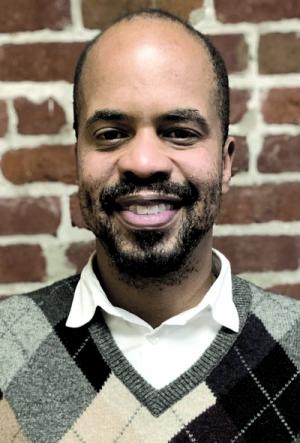Throughout my career as a Black male teacher, I’ve taught in district and charter schools. While many remain determined to highlight their differences, they’re one and the same when it comes to their failure to serve Black children and their inability to attract and retain quality teachers who look like them.
Despite the fact that 6% of California’s students are African American and 54% are Latino, only 1% of teachers in the state are African American males and 20% are Latino.
While State Superintendent of Public Instruction Tony Thurmond has noted California’s teacher shortage as a priority, he would do well to include the lack of male minority educators as both a challenge and a value-add to improving the quality of teaching and learning here.
As a Black male teacher in Oakland, I’ve experienced plenty of traumatic experiences. I’ve been through strikes, superintendent and principal transitions, the birth of a charter teacher’s union, non reelect letters, colleagues leaving their respective schools, and numerous other challenging events. All of this has lead to an increased level of despondency around our current educational model for children and teachers.
But Black male educators maneuver even more obstacles throughout our careers, often before ever stepping foot in a classroom. As Thurmond moves forward with strategies to improve California’s ability to get and keep qualified educators, I hope he’ll start by listening to many of the Black male educators who have fought to get in the classroom and make a difference for our students every day.
One of the biggest barriers keeping Black male educators out of the classroom are those pesky and biased state standardized tests known as the CBEST, CSET, and CTEL/CLAD exams.
The exams are not cheap and often disqualify many from entering the classroom. Even as an experienced, out-of-state teacher, I needed CTEL/CLAD certifications. And, while I understand the need to qualify good teachers, these exams felt like artificial hurdles rather than legitimate qualifiers.
Taking the exams more than once can also be an economic hardship deterring many of the greatest and most influential Black male role models from even considering the teaching profession. Providing Black teachers with financial support and preparation would go a long way toward getting us in front of students and leading them.
Once in the classroom, Black male educators often live in a shared conundrum of underperforming schools, unsupported environments, inconsistent school leadership, poorly funded schools, and this inevitable cloud of school closures.
High tension, concentrated stress, and systems stacked against people of color are stressors we deal with often. We disproportionately experience the foreshadowing and tension of school closures, housing instability and unemployment.
These factors and realities are all products of the second-class citizenship that we were born into and the attitudes that often follow us into the classroom.
Despite this, Black male teachers are often seen as invincible — as if we’re unaffected by the negative attitudes and stereotypes thrust upon us. At the same time, we carry the burden of solving all the discipline “problems” of our Black kids.
Why are we always deemed as overseers of our kids, but rarely as experts within our instructional practices and content areas? We must change and elevate the value placed on Black male educators and their leadership abilities.
A great place for Thurmond to start would be speaking with those of us involved in the Black Teacher Project (BTP). Working as a Black Teacher organizer with BTP in the Bay Area has significantly supported my leadership development while also advancing the mission to sustain, recruit, and develop Black teachers.
BTP offers the support and space for us to thrive as leaders, who are valued, listened to and supported within our schools and district.
Thurmond can use his influence to shift the narrative around Black male educators so that we can engage in important dialogue and action-oriented solutions that bring more of us to the classroom.
I welcome him to come to Oakland where our community has begun discussing the state of Black education. His participation in these critical conversations could yield solutions that our community and the entire state can be proud of for years.
Coron A. Brinson, M.Ed, MPA has been teaching for seven years and is a also teacher organizer for the Black Teacher Project.

